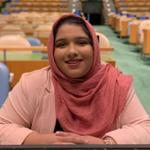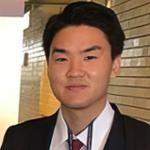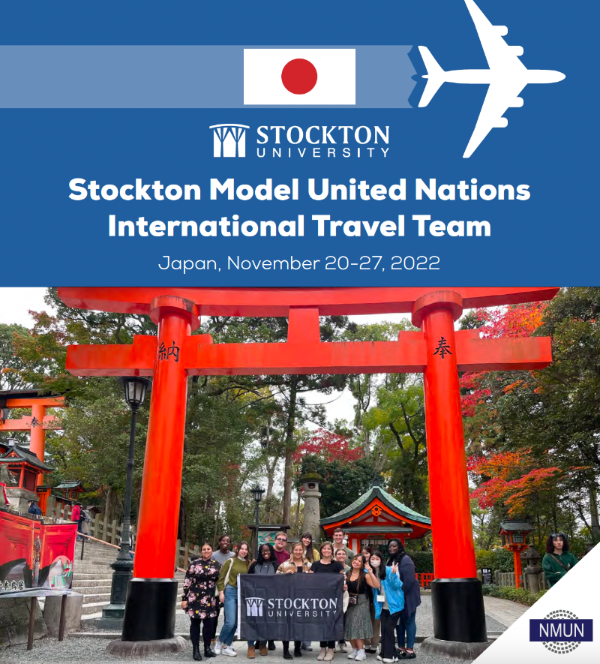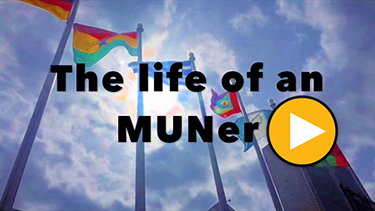Model United Nations
Stockton University Model United Nations is a campus-wide program supported by Academic Affairs and Student Affairs. An innovative experiential learning experience, academic sport clubs like Model UN bridge the gap between extracurricular and academic activities by increasing opportunities for our students to gain skills such as communicating complex issues concisely, dealing effectively with crises under a time constraint, working with people from a variety of backgrounds, solving challenges with creative solutions, and applying discipline-specific knowledge.
Stockton Model UN helps its members develop professional skills such as writing, debating, and networking. But it is more than that, as it is steeped with a sense of camaraderie that allows students to foster friendships with people they normally wouldn't have the chance to meet, whether they be from completely different majors or from different countries across the globe. We pride ourselves on having a team passionate about diplomacy and world affairs and take pride in passing that passion on to all new members. Personally, Stockton Model UN has had a massive influence on my academic and day to day life, enriching both in ways I never anticipated when joining the club 4 years ago.

Current President and Delegate at NMUN-China 2019, NMUN-NY 2017, 2018, and 2019, & NMUN-DC 2018
The lessons and personal growth from NMUN are ones that stay with students long after the conference and the months preparing for it. For myself, attending NMUN conferences shaped me to be the student leader I am at Stockton and taught me that amongst differences, diplomacy is possible to solve issues affecting the world. It truly is an experience that opens up opportunities for students to learn how to problem solve and advocate for themselves and the causes they are passionate about.

Current Public Relations Officer and Delegate at NMUN-China 2019, NMUN-NY 2017, 2018, 2019, & NMUN-DC 2018; Vice Chair for Public Relations of Stockton University; Student Senate President of Stockton University Muslim Students Association; Vice President of Stockton University South Asian Students Association
Model UN taught me that the global issues aren’t always black and white, there will always be a disparity in the implementation of agreements among developed and developing states. But as we continue to address the willingness of humanity to acknowledge overlapping desire for preventing the spread of violence and oppression, we can take one closer step to eventual compliance for all, one SDG at a time.

Alumni and Delegate at NMUN-NY 2015 and 2016, NMUN-Japan 2016
Check out the latest from International Travel Team
Kobe, Japan November 2022
Read our latest publication

How do we select the countries we represent?
Countries are assigned to schools based on a list of preferences and most importantly, size of delegation (or number of student delegates) attending a conference. Stockton's previous country assignments are located in the Awards & Conference Archives tab and show the diversity of countries we have represented. Typically we rotate our preferences for country assignments, moving to a different region and country each year and aiming for a balance of Western and non-Western countries.
The primary reason we frequently represent non-Western countries is that it provides the best learning opportunity for our students. We take our responsibility to accurately reflect the world system seriously, and do not make light of the positions and actions of the countries that we represent. For example, in the year our students were assigned to both North Korea and Luxembourg the training process involved a comparison of those two countries’ interests, positions, and proposed solutions for assigned topics. Further, our students met with representatives at the State Department in D.C. to learn about how that country behaves in diplomatic meetings with the U.S. and within the UN system. That team, and their training process, is a great example of why we often represent non-Western countries that fail to live up to the values of the UN system. Through that process, our students are forced to learn the policy preferences of a government that they disagree with, and then they have to figure out how to communicate those preferences and interests in their assigned UN committee. They learned firsthand how other countries pressure them to try to get them to change, and how treaties and agreements need to be designed in order to be more effective. It’s the other side of the coin, where our students get to learn exactly what the limits of global governance are when they represent a country that frequently violates human rights, degrades the environment, wages violent conflict, and more. It also demonstrates the reality of diplomacy, where the diplomats sometimes behave in some unexpected ways. Students from the U.S. and other Western countries often make assumptions about how leaders of non-Western countries behave, but actually representing them forces them to learn the realities of the world system for better and for worse. It also highlights the difference between a country’s government and their policies, versus the people living in the country. Part of learning about the world requires learning about authoritarian regimes and how they operate, to the detriment of their own people. It also requires learning about how diplomacy and global governance works, as a way to identify opportunities to make progress on human rights, development, and security (the 3 pillars of the UN system) when our students graduate.
It can be difficult to empathize with countries with positions that our students disagree with or would actually suffer harm from if they were living in there. Empathy does not mean to side with leaders of these countries, but instead to understand their positions and their perspective. There is a huge difference between the two, and we are very careful to identify that boundary. In the world system, understanding the other side can lead to better outcomes with the possibility of avoiding war as a way to resolve disputes between countries.
Our student leaders are skilled in providing our delegates with opportunities to work through some of the personal issues they might face in representing a country whose views and behaviors contradict their personal values and are a threat to them. We address this explicitly at club meetings as part of our training, and we have a lot of experience doing this.
As the faculty leader for Model UN at Stockton, it is my hope that representing a variety of countries teaches students the realities of the world system so that they can work towards a better future.
-Dr. Tina Zappile
Questions or interested in joining? Find us on Osprey Hub or send us a message at stocktonmun@gmail.com!




